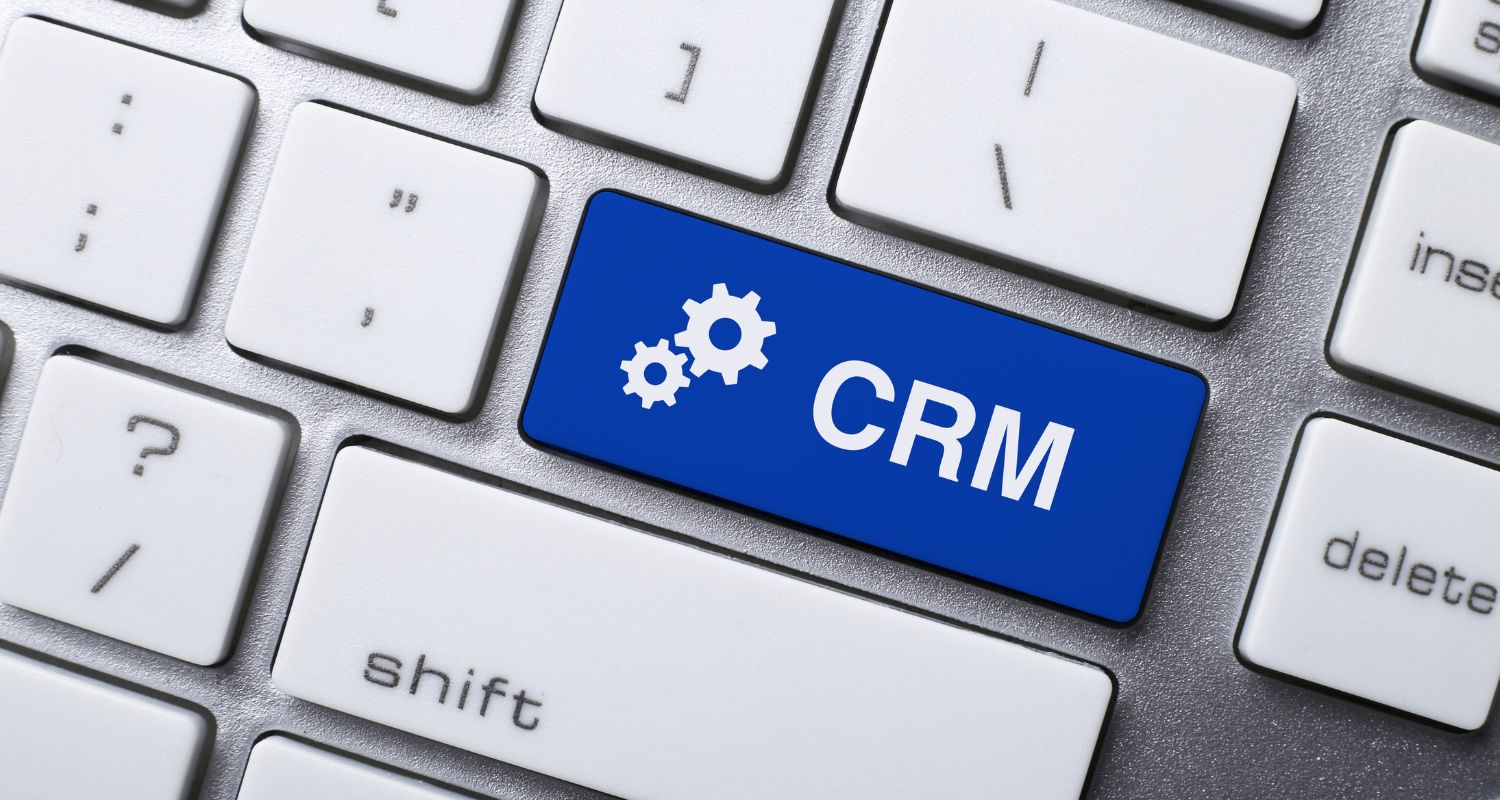Best CRM and Accounting Software – In today’s fast-paced business landscape, organizations are constantly seeking ways to streamline their operations and improve their productivity. Two critical aspects of any successful business are customer relationship management (CRM) and accounting. Implementing robust software solutions for CRM and accounting can significantly enhance efficiency, reduce manual work, and provide valuable insights for strategic decision-making.
In this comprehensive guide, we will explore the best CRM and accounting software available in the market. We will dive into their features, benefits, and how they can empower your business to achieve new heights. So, let’s embark on this journey of discovering the ideal CRM and accounting software that will transform the way you do business!
Why is CRM and Accounting Software Essential for Businesses?
Running a successful business requires effective management of customer relationships and financial transactions. Traditional manual methods often result in inefficiencies, errors, and wasted time. By leveraging CRM and accounting software, businesses can streamline their processes and gain a competitive edge in the market.
CRM software enables businesses to manage and nurture customer relationships efficiently. It centralizes customer data, tracks interactions, and provides valuable insights for targeted marketing campaigns. On the other hand, accounting software automates financial tasks, such as invoicing, expense tracking, and tax management. Integrating these two software solutions can bridge the gap between customer interactions and financial data, leading to improved decision-making and operational excellence.
The Best CRM and Accounting Software: An Overview
Let’s take a closer look at some of the top CRM and accounting software solutions available in the market. These platforms offer a wide range of features and functionalities that cater to the diverse needs of businesses across various industries.
- Salesforce: As one of the pioneers in CRM software, Salesforce offers a comprehensive suite of tools for managing customer relationships. With its robust features like lead management, sales forecasting, and analytics, Salesforce empowers businesses to drive growth and customer satisfaction.
- Zoho CRM: Zoho CRM is a popular choice for small and medium-sized businesses. It provides a user-friendly interface and offers modules for sales, marketing, and customer support. Zoho CRM also integrates seamlessly with Zoho’s accounting software, enabling a smooth flow of data between departments.
- QuickBooks: QuickBooks is a renowned name in the accounting software realm. It caters to businesses of all sizes and offers a range of features like invoicing, expense tracking, and financial reporting. QuickBooks can integrate with various CRM solutions, allowing businesses to align their financial and customer data effectively.
- NetSuite: NetSuite is a cloud-based ERP (Enterprise Resource Planning) solution that encompasses CRM and accounting functionalities. It offers a unified platform for managing financials, customer relationships, and other critical aspects of business operations. NetSuite is an ideal choice for organizations seeking an all-in-one solution.
- Microsoft Dynamics 365: Microsoft Dynamics 365 combines CRM and ERP capabilities to deliver a comprehensive business management platform. With its robust suite of tools, including sales automation, marketing automation, and financial management, Dynamics 365 empowers businesses to optimize their operations and achieve their goals.
These are just a few examples of the best CRM and accounting software available in the market. Each solution comes with its unique features and advantages, catering to different business requirements. In the following sections, we will delve deeper into the benefits of integrating CRM and accounting software and explore more options suitable for small businesses.
Benefits of Integrating CRM and Accounting Software
Integrating CRM and accounting software can unlock a multitude of benefits for businesses. Let’s explore some of the key advantages that organizations can gain by bringing these two essential software solutions together.
- Streamlined Workflows: Integrating CRM and accounting software eliminates redundant data entry and manual processes. It enables seamless data flow between departments, reducing the chances of errors and improving overall efficiency. For example, when a salesperson closes a deal in the CRM system, the corresponding invoice can be automatically generated in the accounting system.
- 360-Degree Customer View: By combining CRM and accounting data, businesses can gain a comprehensive view of their customers. This holistic view helps in understanding customer behavior, preferences, and purchase history. Armed with this knowledge, businesses can personalize their interactions and provide exceptional customer experiences.
- Improved Financial Insights: Integrating CRM and accounting software allows for better financial visibility. Businesses can analyze sales data alongside financial data to gain insights into profitability, revenue trends, and customer lifetime value. These insights enable informed decision-making and help businesses identify areas for growth and optimization.
- Enhanced Collaboration: When CRM and accounting software are integrated, teams can collaborate more effectively. Sales and finance departments can access shared data, fostering transparency and enabling better coordination. This collaboration leads to improved customer service, accurate sales forecasting, and streamlined order fulfillment.
- Automation and Time Savings: Manual data entry and repetitive tasks can be time-consuming and prone to errors. By integrating CRM and accounting software, businesses can automate various processes, such as invoice generation, payment tracking, and financial reporting. This automation saves time, reduces the risk of human error, and allows employees to focus on more value-added activities.
The benefits mentioned above are just a glimpse of what integrating CRM and accounting software can bring to your business. As we move forward, we will explore additional software options suitable for small businesses and delve into the factors to consider when choosing the right CRM and accounting software for your specific needs.
Comparing the Top CRM and Accounting Software
In this section, we will compare the top CRM and accounting software solutions based on their key features, pricing, and user satisfaction. It’s important to note that the suitability of a software solution may vary depending on the unique requirements and preferences of your business.
| Software | Key Features | Pricing | User Satisfaction |
|---|---|---|---|
| Salesforce | Lead management, sales forecasting, | Starting at $25/user/month | 4.5/5 |
| analytics | |||
| Zoho CRM | Sales automation, marketing automation, | Starting at $12/user/month | 4.3/5 |
| customer support | |||
| QuickBooks | Invoicing, expense tracking, financial | Starting at $25/month | 4.5/5 |
| reporting | |||
| NetSuite | Financial management, customer | Custom pricing | 4.4/5 |
| relationship management | |||
| Microsoft | Sales automation, marketing automation, | Starting at $65/user/month | 4.4/5 |
| Dynamics 365 | financial management |
The table above provides a high-level comparison of the key features, pricing, and user satisfaction ratings of these software solutions. It’s essential to delve deeper into each platform’s specific features and capabilities to make an informed decision. Let’s explore some of the top CRM and accounting software options for small businesses.
Top CRM and Accounting Software for Small Businesses
Small businesses have unique needs and often require cost-effective yet powerful software solutions. Here are some of the top CRM and accounting software options specifically tailored for small businesses:
- Freshworks CRM: Freshworks CRM is designed for small businesses looking for an intuitive and affordable CRM solution. It offers features like contact management, lead scoring, email marketing, and AI-based chatbots. Freshworks CRM seamlessly integrates with Freshbooks, a popular accounting software, ensuring smooth data flow between customer interactions and financial records.
- Wave: Wave is a free accounting software perfect for small businesses with basic accounting needs. It offers features like invoicing, expense tracking, and receipt scanning. While Wave does not have built-in CRM functionalities, it integrates with various CRM software, allowing small businesses to manage their finances alongside customer relationships.
- Pipedrive: Pipedrive is a user-friendly CRM software that caters to the needs of small and medium-sized businesses. Its visual sales pipeline allows businesses to track deals, manage contacts, and automate repetitive tasks. Pipedrive integrates with various accounting software, such as QuickBooks and Xero, enabling businesses to synchronize their sales data with financial records.
- Sage Business Cloud Accounting: Sage Business Cloud Accounting is a comprehensive accounting software solution that offers invoicing, expense tracking, and financial reporting capabilities. While it does not provide built-in CRM functionalities, it integrates with popular CRM software like Salesforce and Zoho CRM, ensuring a seamless flow of customer and financial data.
These software options offer a balance between affordability, ease of use, and essential features required by small businesses. However, it’s crucial to evaluate your specific business requirements and conduct thorough research before making a final decision. Let’s move on to the next section, where we will discuss the key factors to consider when selecting CRM and accounting software for your business.
Choosing the Right CRM and Accounting Software for Your Business
When selecting CRM and accounting software for your business, it’s important to consider several factors to ensure the solution aligns with your unique needs and goals. Here are some key factors to keep in mind during the evaluation process:
- Business Requirements: Begin by identifying your specific CRM and accounting requirements. What features are essential for your business? Do you need advanced reporting capabilities, automation features, or integrations with other tools? Understanding your requirements will help you narrow down the software options that best meet your needs.
- Scalability: Consider the future growth and scalability of your business. Will the CRM and accounting software be able to accommodate your expanding operations? Ensure that the software can handle increased data volumes, user accounts, and additional features as your business evolves.
- Integration Capabilities: Evaluate the integration capabilities of the CRM and accounting software. Can it seamlessly integrate with other tools and software you currently use or plan to adopt in the future? Integration with other business-critical systems, such as your e-commerce platform or marketing automation software, can streamline operations and provide a unified view of your business.
- User Interface and Ease of Use: A user-friendly interface and intuitive navigation are essential for ensuring a smooth user experience. Consider the software’s ease of use and the learning curve for your team. Look for software that offers comprehensive training resources and ongoing support to facilitate a seamless transition.
- Security and Data Privacy: Protecting your business and customer data is paramount. Ensure that the CRM and accounting software you choose adheres to industry-standard security practices and data encryption protocols. Look for features like access controls, data backups, and secure data storage to safeguard your sensitive information.
- Customer Support and Reviews: Assess the customer support provided by the software vendor. Look for comprehensive support options, including documentation, online resources, and responsive customer service. Additionally, read customer reviews and testimonials to gauge the satisfaction levels of existing users and the overall reputation of the software provider.
By considering these factors, you can make an informed decision and choose the CRM and accounting software that best aligns with your business objectives. Now, let’s address some frequently asked questions to further enhance your understanding of CRM and accounting software.
Frequently Asked Questions about CRM and Accounting Software
FAQ 1: What is CRM software?
CRM software, or Customer Relationship Management software, is a technology solution that enables businesses to manage and nurture customer relationships effectively. It centralizes customer data, tracks interactions, and provides valuable insights for sales, marketing, and customer service teams. CRM software empowers businesses to improve customer satisfaction, increase sales, and drive growth.
FAQ 2: How does CRM software benefit businesses?
CRM software offers several benefits to businesses, including:
- Improved customer relationships: CRM software centralizes customer data, allowing businesses to understand customer needs and preferences better. This enables personalized interactions, leading to improved customer satisfaction and loyalty.
- Streamlined sales processes: CRM software provides tools for lead management, sales pipeline tracking, and sales forecasting. These features enable sales teams to manage deals more efficiently and close more sales.
- Enhanced marketing campaigns: CRM software provides insights into customer behavior and preferences, allowing businesses to create targeted marketing campaigns. By delivering personalized and relevant content, businesses can improve campaign effectiveness and drive higher conversion rates.
- Efficient customer support: CRM software helps businesses streamline their customer support processes. It provides a unified view of customer interactions, enabling support teams to provide prompt and personalized assistance.
FAQ 3: What are the key features to look for in accounting software?
When evaluating accounting software, consider the following key features:
- Invoicing: The software should offer robust invoicing capabilities, allowing you to create professional invoices, track payments, and send automated reminders.
- Expense Tracking: Look for expense tracking features that simplify the process of recording and categorizing expenses. This helps in managing cash flow and preparing accurate financial statements.
- Financial Reporting: Comprehensive financial reporting features enable you to generate balance sheets, income statements, cash flow statements, and other critical financial reports.
- Tax Management: The software should assist in tax calculations, provide tax forms, and help you stay compliant with tax regulations.
- Bank Reconciliation: Bank reconciliation features help you match your bank transactions with your accounting records, ensuring accuracy and minimizing errors.
- Integration with CRM: Integration with CRM software allows for seamless data flow between customer interactions and financial records, providing a unified view of your business.
FAQ 4: Can CRM and accounting software be integrated?
Yes, CRM and accounting software can be integrated to create a seamless flow of data between customer relationship management and financial management processes. Integration between these two systems eliminates manual data entry, reduces errors, and enables better decision-making by correlating customer interactions with financial data.
Integration between CRM and accounting software allows for a holistic view of your business, empowering you to make data-driven decisions and drive growth.
FAQ 5: Are there any cloud-based CRM and accounting software options?
Yes, many CRM and accounting software solutions are cloud-based, offering numerous advantages over traditional on-premises software. Cloud-based software allows businesses to access their data and applications from anywhere, at any time, using any device with an internet connection. It eliminates the need for costly infrastructure and provides automatic software updates, ensuring you always have the latest features and security patches.
Cloud-based CRM and accounting software also offer scalability, enabling businesses to add or remove users and expand their storage capacity as needed. This flexibility is particularly beneficial for growing businesses.
FAQ 6: How can CRM and accounting software improve data security?
CRM and accounting software play a vital role in enhancing data security for businesses. These software solutions provide features such as user access controls, data encryption, and regular backups to safeguard sensitive business and customer information.
By centralizing data and implementing secure access controls, CRM and accounting software reduce the risk of data breaches and unauthorized access. Additionally, regular backups ensure that your data is protected and can be restored in the event of a system failure or data loss.
It’s important to choose reputable CRM and accounting software vendors that prioritize data security and comply with industry standards and regulations.
Conclusion
Selecting the best CRM and accounting software for your business can significantly impact your operational efficiency, customer relationships, and overall success. In this comprehensive guide, we explored the importance of CRM and accounting software, compared some of the top software options in the market, and provided insights into choosing the right solution for your business. By leveraging the power of CRM and accounting software, you can streamline your business operations, gain valuable insights, and drive growth.
Remember to assess your business requirements, consider scalability, integration capabilities, user interface, and security features when evaluating software options. Additionally, read customer reviews and seek recommendations from trusted sources to make an informed decision.
Streamline your business operations and empower your team with the best CRM and accounting software available. Embrace the power of technology and take your business to new heights of success!
 FLPJEPANG.COM Be Smart!
FLPJEPANG.COM Be Smart!




